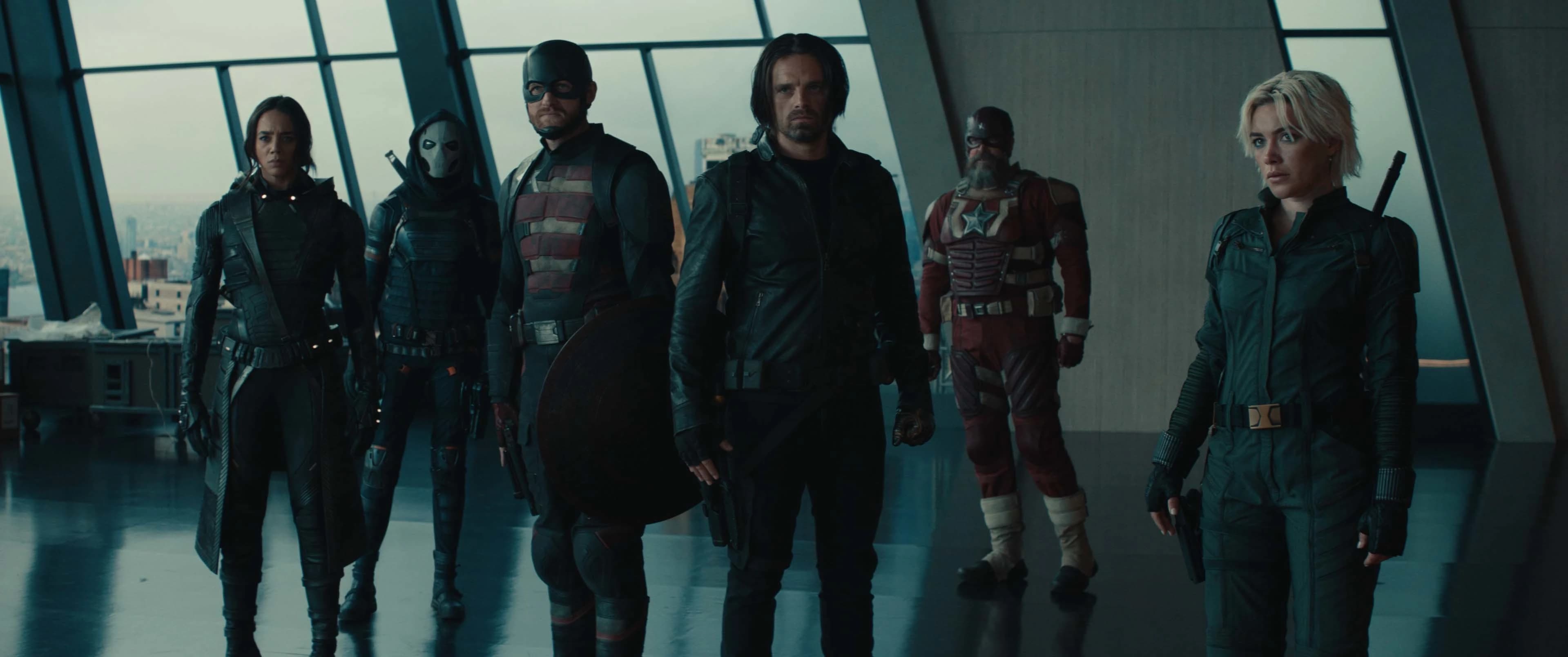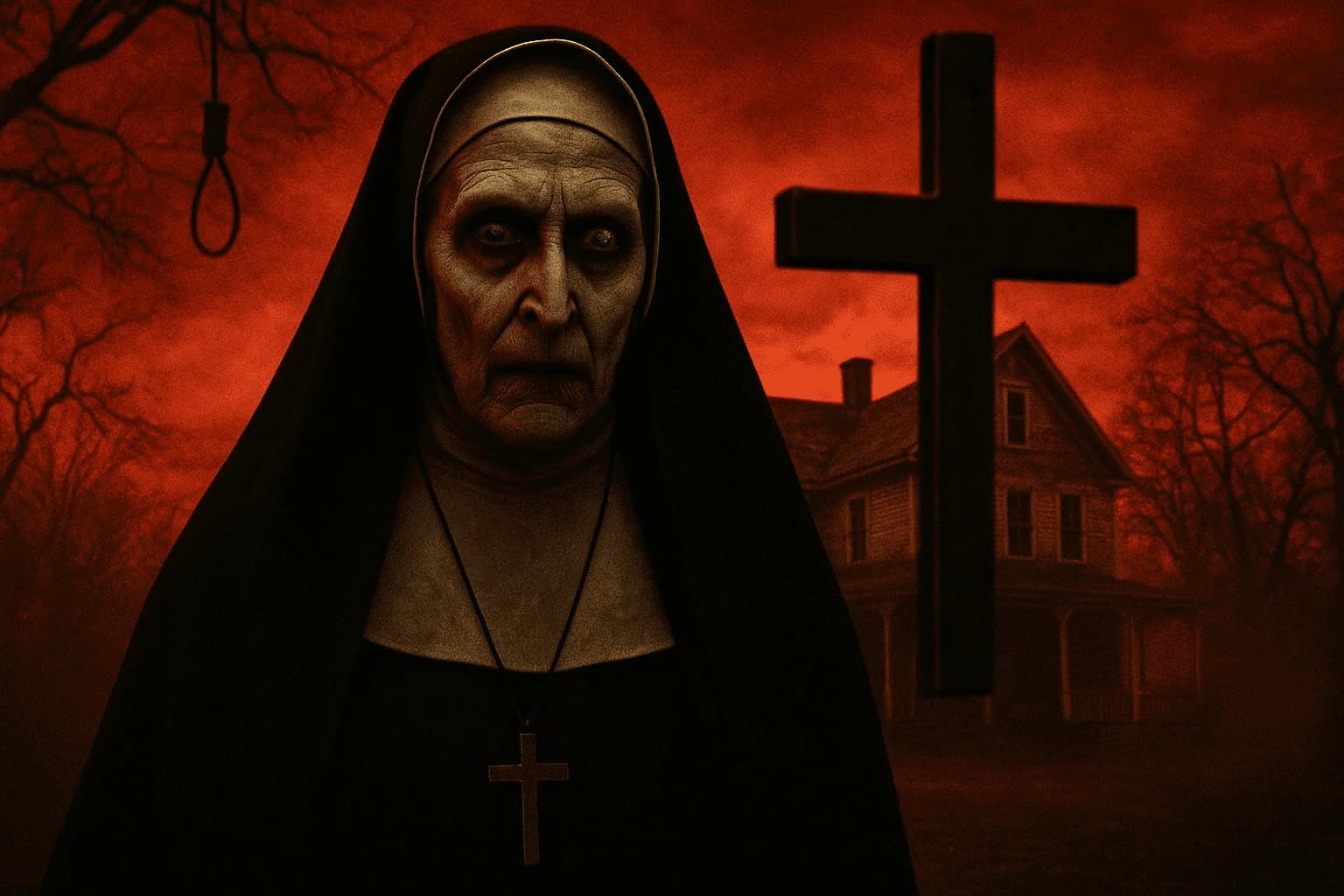© 2025 Roz UpdatesbyTETRA SEVEN

* All product/brand names, logos, and trademarks are property of their respective owners.
After years of build-up and fan speculation, Marvel Studios has finally unveiled Thunderbolts (2025), a bold and gritty entry into the ever-evolving Marvel Cinematic Universe (MCU). As part of Phase 5, this film arrives with immense expectations and a compelling ensemble cast that deviates from the polished, heroic sheen typically associated with Marvel films. Instead, Thunderbolts offers a deeper, more introspective look into the psyche of its characters—flawed anti-heroes brought together under suspicious government oversight.
Starring Florence Pugh as Yelena Belova, Sebastian Stan as Bucky Barnes, and David Harbour as Red Guardian, Thunderbolts brings together a misfit team of morally ambiguous characters—some with haunted pasts, others with redemption arcs yet to be written. The film isn’t just a showcase of action and CGI marvels; it’s an exploration of trauma, loyalty, and identity in a world that increasingly blurs the line between right and wrong.
The movie sets itself apart by combining fast-paced sequences with moments of vulnerability and psychological depth. Directed by Jake Schreier and scripted by Eric Pearson, Thunderbolts positions itself as the MCU's answer to darker ensemble narratives, akin to The Suicide Squad but with more thematic weight.
With post-credit scenes that tease seismic shifts in the MCU’s future—and connections to the upcoming Avengers: Doomsday—this review dives deep into what Thunderbolts gets right, where it stumbles, and whether it’s worth your ticket or streaming time. From the performances and plot to the cinematic tone and post-credit surprises, we’ll cover everything you need to know.
So, is Thunderbolts the game-changer Marvel needed, or just another cog in the franchise machine? Let’s dive into the full review.
Marvel’s Thunderbolts assembles a fascinating blend of familiar faces and fan-favorite anti-heroes, each bringing emotional depth and intensity to the screen. Unlike traditional Avengers-style lineups, the Thunderbolts team consists of characters with gray morals, personal baggage, and a compelling need for redemption. This ensemble-driven film thrives on the strength of its cast’s chemistry and nuanced portrayals.
Florence Pugh reprises her role as Yelena Belova with the same sharp wit and emotional complexity that made her a standout in Black Widow. Her interactions with Sebastian Stan’s Bucky Barnes are particularly noteworthy—an intense dynamic rooted in shared trauma and silent resilience. Stan delivers a subdued yet powerful performance, balancing Bucky’s haunted past with a newfound leadership role.
David Harbour, returning as the rough-edged Red Guardian, adds both comic relief and emotional grounding. His character’s evolving relationship with Yelena reveals layers of vulnerability beneath the bravado, offering some of the film’s most heartfelt moments. The trio’s chemistry anchors the narrative, making their alliances and conflicts feel genuine and earned.
Among the supporting cast, Wyatt Russell’s John Walker (U.S. Agent) steals scenes with his conflicted persona, walking the line between control and chaos. Olga Kurylenko’s Taskmaster receives more character development this time, transforming from a mute assassin to a figure grappling with her own autonomy.
Newcomer Ghost (Hannah John-Kamen) gets significantly more screen time and character focus, allowing her story arc to evolve from a peripheral villain in Ant-Man and the Wasp to a central figure dealing with isolation and trust issues. These performances collectively enhance the film’s darker tone, offering viewers emotional investment beyond the action sequences.
From Karachi to Karachi's Super Cinema to New York’s AMC theaters, audiences have responded enthusiastically to the cast’s grounded performances. Critics in Pakistan have specifically praised the emotionally rich arcs, a refreshing departure from formulaic superhero tropes.
| Character Name | Portrayed By | Role in Film |
|---|---|---|
| Yelena Belova | Florence Pugh | Assassin turned anti-hero leader |
| Bucky Barnes | Sebastian Stan | Former Winter Soldier, now team moral anchor |
| Red Guardian | David Harbour | Aging Soviet super-soldier with heart |
| U.S. Agent (John Walker) | Wyatt Russell | Government-backed soldier with issues |
| Taskmaster | Olga Kurylenko | Skilled mimic, now with more agency |
| Ghost (Ava Starr) | Hannah John-Kamen | Quantum-phase assassin seeking redemption |
| Valentina Allegra de Fontaine | Julia Louis-Dreyfus | Shadowy orchestrator of the team |
Thunderbolts (2025) centers on a covert government program assembling a task force of ex-operatives, vigilantes, and morally ambiguous individuals to handle high-risk missions. The team, coordinated by Valentina Allegra de Fontaine, is drawn into a global conspiracy that challenges their loyalty and exposes deep-seated secrets from their pasts.
Yelena Belova reluctantly takes the leadership role, supported by the emotionally guarded Bucky Barnes and the unpredictable Red Guardian. Their mission? Neutralize a rogue AI project linked to a disgraced former Avenger. Along the way, alliances are tested, and not everyone makes it out unscathed.
One of the most striking elements of Thunderbolts is its candid exploration of mental health. Bucky’s PTSD, Yelena’s survivor’s guilt, and Ghost’s struggle with isolation are not just passing mentions—they form the emotional backbone of the narrative. Director Jake Schreier ensures that character trauma is handled with sensitivity, giving the film a surprising emotional resonance.
Marvel’s decision to tackle such themes reflects a growing trend in superhero cinema—moving beyond action and spectacle to focus on inner conflict. It’s reminiscent of Logan and WandaVision, yet maintains its own identity by showing how a group of broken individuals can find strength in shared vulnerability.
Tonally, Thunderbolts is darker than previous MCU fare but not grim. It balances introspective drama with bursts of humor and action, staying true to the Marvel formula while innovating just enough. The pacing is deliberate, especially in the first act, allowing characters to breathe and interact meaningfully. The second half picks up momentum, culminating in a climactic battle that’s as emotional as it is explosive.
Schreier’s direction shines in moments of quiet tension and visual symbolism. His use of close-ups, dim lighting, and handheld camera work during key dialogues accentuates the film’s personal stakes. The result is a character-driven thriller that’s more cerebral than the typical Marvel fare but still delivers the blockbuster thrills fans expect.
Marvel’s Thunderbolts (2025) is an ambitious departure from the studio's usual high-octane, crowd-pleasing formula. While it retains the necessary MCU trademarks—big action, snappy dialogue, and interconnected world-building—it’s the film’s emotional depth and grounded storytelling that truly distinguish it.
The film excels in character development. Florence Pugh's Yelena Belova leads with charisma and vulnerability, offering one of the most emotionally resonant performances in the MCU to date. Sebastian Stan’s portrayal of Bucky Barnes brings quiet gravitas, while David Harbour’s Red Guardian adds a bittersweet levity. The ensemble's chemistry is rich and believable, making their interactions feel earned rather than manufactured.
Director Jake Schreier leans into a more cerebral, noir-tinged style that allows emotional beats to breathe. The thematic exploration of trauma, identity, and redemption is unusually mature for a superhero movie, helping Thunderbolts transcend genre expectations.
However, the film isn’t without flaws. The pacing in the first act is notably slow, with exposition-heavy scenes that slightly undercut momentum. While the villain’s presence is hinted at, the antagonist remains largely undeveloped—more a concept than a character. This undercuts the stakes somewhat in the third act.
Additionally, while the darker tone is welcome, it occasionally clashes with Marvel’s obligatory quips and lighter moments, leading to occasional tonal inconsistencies.
Acting: 9/10
Plot: 7.5/10
Direction & Tone: 8/10
Visuals & Action: 8/10
Emotional Impact: 8.5/10
Thunderbolts is not the typical MCU spectacle—but that’s a good thing. It offers a thoughtful, character-driven drama cloaked in superhero trappings. While not flawless, it’s one of the more introspective entries in Marvel’s Phase 5, signaling a welcome shift toward richer, more grounded storytelling.
Final Rating: 8.2/10
Thunderbolts (2025) includes two major post-credit scenes, each loaded with narrative weight and future franchise hints. The mid-credit scene shows Yelena Belova confronting a shadowy figure rumored to be Norman Osborn, marking the character's first appearance in the MCU. His role as a potential puppet master manipulating global political unrest signals a new era of antagonists—less god-like, more manipulative.
The post-credit scene offers a quiet but potent setup: Bucky Barnes is approached by Sam Wilson (Captain America), who hints at the rising threats that will require “people who know how to operate in the shadows.” This subtly teases the return of the Secret Avengers or a Dark Avengers subplot, connecting directly to Avengers: Doomsday.
Marvel Studios is known for planting seeds, and Thunderbolts does so with precision. The appearance of Osborn and references to “superhuman oversight” hint at a larger ideological divide that could spark civil unrest, much like Civil War but on a more global scale. The Thunderbolts are being positioned not as a replacement for the Avengers but as a morally gray counterpart capable of doing the dirty work.
Whispers of a multiverse rift and an unrevealed project named “Code X” suggest multiversal threats will escalate. This positions Avengers: Doomsday as a convergence event where traditional heroes and anti-heroes must unite or clash over the fate of multiple timelines.
Fan communities are buzzing with theories. One posits that Osborn is secretly funding a multiversal variant project aimed at rewriting history. Another suggests Yelena might eventually lead a breakaway faction that becomes the New Avengers, separating from Valentina’s covert operations.
Pakistani Marvel forums have speculated that a South Asian hero may be introduced through Osborn’s intel files—potentially linking Kamala Khan’s Ms. Marvel with the Thunderbolts in a Phase 6 crossover.
Thunderbolts (2025) emerges as a compelling addition to the Marvel Cinematic Universe, offering a fresh perspective by focusing on a team of antiheroes grappling with their pasts and personal demons. The film's strength lies in its character-driven narrative, exploring themes of redemption, mental health, and the complexities of heroism. Florence Pugh's portrayal of Yelena Belova stands out, delivering a performance that balances vulnerability and strength. Sebastian Stan and David Harbour also shine, adding nuance and gravitas to their roles.
Director Jake Schreier successfully navigates the darker tones of the story while maintaining the action and humor expected from a Marvel film. The post-credit scenes effectively set the stage for future MCU installments, particularly Avengers: Doomsday, generating excitement among fans.
Critically, Thunderbolts has been well-received, holding an IMDb rating of 7.6/10 and a Rotten Tomatoes score of 88%. Its box office performance, with a worldwide gross of $278 million as of May 13, 2025, reflects its strong appeal among global audiences.
In summary, Thunderbolts offers a refreshing take on the superhero genre, emphasizing character development and emotional depth. It's a must-watch for Marvel enthusiasts and newcomers alike, promising a thought-provoking and entertaining experience.

8 September 2025
May 21, 2025 at 06:07 AM
Interesting take on the darker side of the MCU. Thunderbolts had some great character moments and chemistry, but it felt like it held back from going all-in on its potential. Still, it’s refreshing to see a team-up that isn’t all clean-cut heroes. Looking forward to how this evolves!